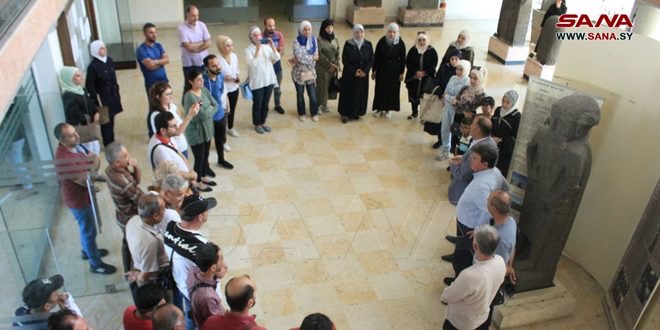On July 30, the exhibition “History of Islamic Coins” opened at the National Museum of Aleppo, organized by the Ministry of Culture – the General Directorate of Antiquities and Museums.
The exhibition includes 19 pictures displaying the most prominent coins that were used during the historical Islamic period in Syria and Aleppo in particular, with details of where they were minted, their classification and distinction among the ancient coins.
The Director General of Antiquities and Museums, Muhammad Nazir Awad, said in a statement to SANA News Agency reporter “the Aleppo exhibition is part of a series of exhibitions that are held at the level of Syria. Also the fact that it is held on the wall of the museum makes it easy for citizens to view the paintings at any time.”
Awad added : ” The exhibition includes the Syrian museums’ treasures of coins that have historical, cultural, political and social implications for each era, pointing to the importance of choosing the Aleppo Museum to display these coins.”
Director of Antiquities and Museums of Aleppo, Dr. SakhrOlabi,” indicated that the stages of preparation for the exhibition began with the collection of information and the joined efforts of citizens and the concerned authorities to recover the valuable money and protect it from theft and extinction.”
Olabi added:” The aim of the exhibition is purely educational, especially for the youth segment, by presenting the attached information about each currency in a simple manner, also bringing them into contact with the history of the city of Aleppo by identifying its status over the ages.”
Finally, the Director of Excavations and Archaeological Studies at the General Directorate, Dr. Hammam Al-Saad, explained that the exhibition covers the Islamic eras starting from the Umayyad period, including Dinars, Dirhams, and Fils types of coins .
It also sheds light on the mechanism of striking and the Arabization of money and coins that characterized each region, and the role of Aleppo in the coining process during the Ottoman era.
Leen Al-Salman

